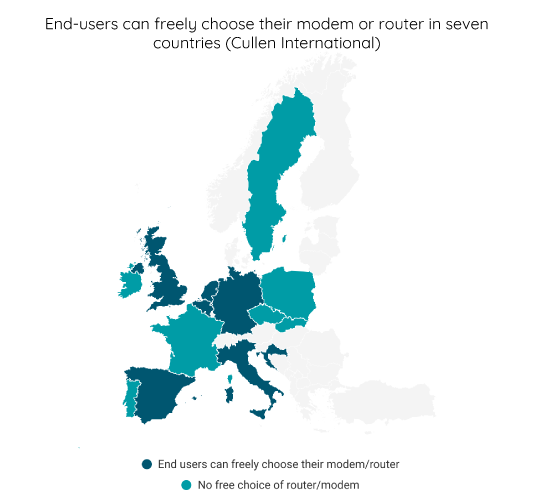According to the EU open internet rules, internet service providers should enable end users to freely choose their router or modem.
A provider can still set requirements on the equipment used in the customer’s premises, if that equipment forms part of this provider’s network. This depends on how the national regulatory authority (NRA) has defined the network termination point.
Cullen International’s new research shows that NRAs clearly defined the network termination point in five of the 14 European countries studied.

In four countries, the NTP definition enables end users to freely choose both modem and router broadband equipment. Some exceptions may apply for fibre networks. In one other country, it only enables the free choice of modem, but not router.
Additionally, in seven of the countries studied, specific requirements to facilitate the free choice of router or modem apply.
For more information and access to the benchmark, please click on “Access the full content” - or on “Request Access”, in case you are not subscribed to our European Consumer Protection (in Telecoms) service.
more news
24 September 25
Cyprus adopts final CSRD transposition law and member states advance efforts on the “stop-the-clock” directive
Cullen International’s updated benchmark tracks the progress made by the 27 EU member states in transposing the CSRD and the related “stop-the-clock” directive.
23 September 25
Seven member states impose essential requirements beyond those in the Postal Services Directive
Our latest research benchmarks the extent to which European countries have included essential requirements within their postal framework, i.e. within the scope of postal regulation. Essential requirements are general non-economic reasons which can induce a country to impose conditions on the supply of postal services.
22 September 25
Six out of fourteen selected European countries have adopted, or are discussing the adoption of rules on the prominence of services of general interest
Cullen International has just published its latest benchmark on the prominence of services of general interest in fourteen European countries.